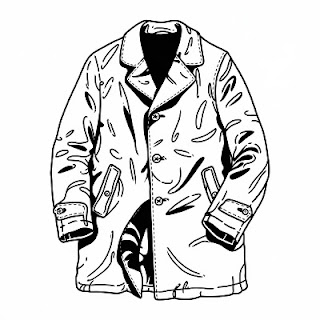The Bedraggled Brother
The case of Richard and his brother Mendel could certainly teach a thing or two about human foibles. Mendel had a remarkable talent: he could never hold on to a job for more than a week. A month? Forget about it. A year? Impossible.
Richard, the responsible older sibling, took it upon himself to care for his brother, supplying him with food, clothing, and a roof over his head. Since they were about the same size, Richard even gave him his old clothes. A kindness, it is true, but sadly, a short-lived one.
Within days, Richard noticed something strange. The coat he had just given Mendel—a perfectly fine coat—was already starting to show signs of distress. Some buttons were missing, and the seams were unraveling. The coat now resembled something that belonged in a ragbag.
Richard cornered his brother. “What happened to the nice coat I gave you?”“What can I say?” Mendel shrugged. “You gave me a coat that has seen better days. The stitching was poorly done, and—well, the buttons just popped off.”
Richard decided it was time for an experiment. He bought two brand-new, identical coats—one for himself and one for Mendel. A few days later, when they met again, Richard looked as sharp as ever, in his pristine coat. But Mendel? Well, you guessed it—his new coat was already starting to show signs of distress, as though it had been through a hundred winters and lost every battle.
“What happened to your coat now?” Richard exclaimed. “Look at mine! It still looks brand-new, while yours is already a pile of rags!"Mendel was unfazed. “Do you really think you can change the laws of nature? Poor people wear ragged clothing, with missing buttons and fraying seams. It’s just how it is!”
Richard was disheartened but decided to let it go—until, that is, they both attended a dinner a short while later. After the meal, a comedian took the stage, his eyes gleaming with mischief. His act? Pretending to be a scruffy hobo who’d stumbled into a high-society party where tuxedos and evening gowns were de rigueur. The audience roared with laughter as he exaggerated the clumsy mannerisms of a bum utterly out of place.
Richard, ever observant, leaned toward his brother. “Look at the comedian,” he whispered. “He’s pretending to be poor, but his coat? No rips. No missing buttons. So you see—being poor doesn’t mean you have to look like a walking disaster.”
Who Should Lead the Fight Against Amalek?
The Midrash offers an intriguing answer: Joshua was a great-great-grandson of Joseph. That matters because Amalek was a nation with “no fear of God” (Deut. 25:18). Joseph, by contrast, was the very model of moral integrity, the man who boldly declared, “I am a God-fearing person” (Gen. 42:18). Who better to lead the charge against Amalek than a descendant of the man who embodied everything they rejected?
But there’s a catch. Was Joseph the only one of Jacob's sons who feared God? After all, all of his twelve sons were righteous men, devout and God-fearing. Why was Joseph’s descendant singled out for this mission?
Joseph's Legacy
Amalek might have argued, “Fear of God? That’s your thing. Not ours. It’s all well and good for you to be devout and upright; but we’re doing fine without it, thank you very much.”
That’s where Joseph comes in.
Joseph was a paradox. He dressed like an Egyptian and spoke like an Egyptian; even his own brothers didn’t recognize him. But he never let go of what mattered most to him. Amid all the pretense, Joseph still declared, “I am a God-fearing person.”
His legacy was clear: Joseph wasn’t just a model for the Jewish people; he was a model for all humanity. Moral rectitude is not a uniquely Jewish trait. It is a universal one—a virtue that should be embraced by all, no matter their background.
So, when it came to fighting Amalek—when it came to standing up to a nation that had no regard for God or higher morality—who better than Joseph’s descendants to lead the charge? Joseph, the man who navigated the halls of power in Egypt while proudly proclaiming his reverence for God, showed that moral integrity is a noble trait for anyone, anywhere.
And so, we see: the tribe of Joseph was the one best suited to lead the fight against Amalek—a people who had forgotten what it means to stand before the Almighty.
(Adapted from Mishlei Yaakov, pp. 147-148)
